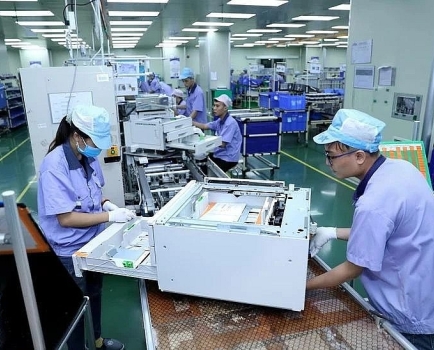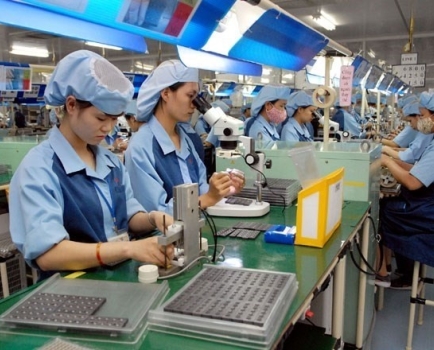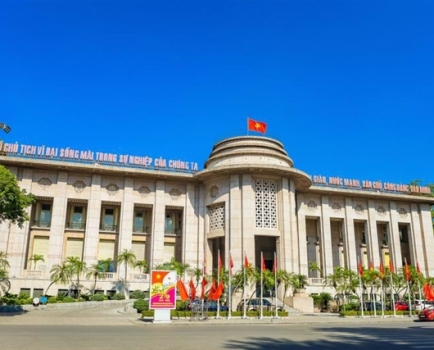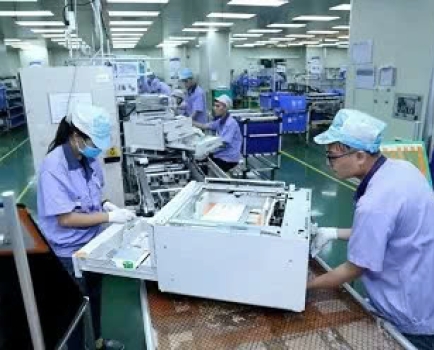Fairness for private sector
Mon, 27 May 2019 15:39:00 | Print | Email Share:
Enterprises in Vietnam’s private economic sector have not received land and taxation incentives while they are restrained by institutional regulations, policies and thousands of procedures and formalities.
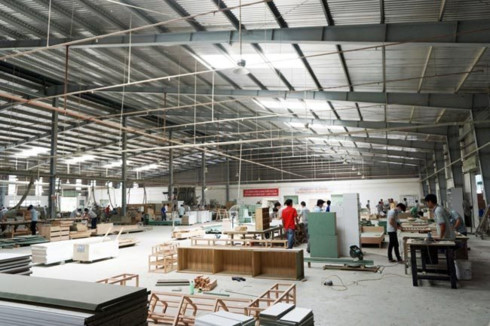
To promote equality among economic sectors, the State should build
a legal system applicable to business, which needs to embrace transparency,
equality, clarity and simplified procedures – PHOTO: MINH DUY
“Equality” was one of the 10 key words given by Prime Minister Nguyen Xuan Phuc to private enterprises during Vietnam Private Sector Economic Forum held in Hanoi on May 2.
Equality, explained the Prime Minister, is to give the private economic sector fairness before the law, and equitability in competition and in resource allocation versus other sectors, in particular, accessibility to capital, technology, management and human resources.
However, in practical terms, inequality in resource allocation has been a serious hurdle to the development of the country’s private economic sector.
Contrasting pictures
In recent years, the private economy has emerged as one of the key growth drivers pulling along the entire economy as it accounted for some 42% of Vietnam’s gross domestic product, created 30% of the national budget and provided jobs for some 85% of the country’s labor pool.
Despite all the improvements, the real strength of this economic sector is basically “weak and scattered.” A few private business groups have been formed. However, they don’t have the ability to turn the tables.
A prerequisite for the development of the private sector and its larger contribution to the national economy relates to the existence of big business groups which are forceful enough to support the rest of the corporate sector in moving forward. This model has been proved successful in South Korea, Thailand, Taiwan and suchlike.
In Vietnam, however, during the past decade, although the contingent of small- and medium-sized enterprises (SMEs) has expanded, the number of big business groups has remained unchanged.
“The economy accommodates way too many SMEs and business households,” said Nguyen Minh Cuong, an economist with the Asian Development Bank (ADB).
“This should be a source of concern.” Statistically, up to 95-97% of Vietnam’s total enterprises are small businesses or microenterprises. It’s therefore very tough for them to engage in global supply chains.
Dang Quang Khoi, director of An Lap Plastic Co., a second-tier supplier for a big electronic company in Vietnam, said of the dozens of plastic product suppliers of foreign-invested enterprises (FIEs) present here, only two of them are “pure” Vietnamese companies.
“This situation poses a big risk because our output is mainly for the foreign investment sector,” said Khoi.
Human resources, technology and management, according to Khoi, are the challenges his 300-strong company has been facing. Citing human resources as an example, he said his company’s work force changes on the daily basis.
Some employees quit even before they finished their training at An Lap although Khoi had paid them salaries and allowances equal to the common level in the industry, he said. As the quality of its staff is not high, his company’s managerial level is not high either.
“It’s extremely tough for us to fill high-level management vacancies,” said Khoi. “We have to train senior workers to fill the posts. But these people lack managerial competence as well as other skills.”
Shortages of human resources and capital have barred SMEs from investing in state-of-the-art technology, which significantly dents their competitiveness and deprives them of the opportunity to take part in global supply chains.
Uneven quality of services and products is the major obstacle which keeps private SMEs from entering into global supply chains in the context that the international marketplace has set ever-higher standards on the environment and health, according to the representative from the ADB.
In dire contrast with the skinny body of local private enterprises are robust FIEs. The foreign investment sector has grown continuously and cranked up pressure on their local counterparts.
FIEs have developed robustly partly because they enjoy overwhelming advantages over their private domestic rivals, like finance, management, market strength, technology and the ability to engage in global supply chains.
However, the crux of the issue—according to Tran Dinh Thien, an economist who is a member of the Prime Minister’s group of economic advisers, a thinktank—is that FIEs know how to maximize incentives given by Vietnam to foreign investors.
In addition to natural treatments, such as abundant work force, low costs, geographical locations as well as market scale and growth rate, other important policy incentives are land accessibility, taxation reduction and exemption, and competition among provinces.
“These incentives are totally unavailable to private Vietnamese enterprises,” said Thien.
“Vietnamese enterprises are tied up and restrained by institutional regulations, policies and specific stipulations on bank interest rates, foreign exchange rates and thousands of formalities and procedures.”
Discrimination does not exist in the words and phrases of laws and regulations but in the mindset and relationship between management agencies and private enterprises, according to Dien Quang Hiep, chairman of the Binh Duong Wood Association and chairman of Minh Phat 2 Company.
“When shifting from a planned economy to a market one, Vietnam’s laws were changed fast because they are only written documents,” Hiep said. “But the most difficult change is what people often think, which is deep inside personal relations. And as far as relations are concerned, regulations are easily ignored.”
Transparent and nonarbitrary policies needed
To promote equality among economic sectors, Nguyen Trong Dieu, chairman of the Vietnam Private Business Association, argued that the State should build a legal system applicable to business, which needs to embrace transparency, equality, clarity and simplified procedures. “We’re in need of fairness, transparency and healthiness,” said Dieu.
And to realize this target, management agencies have to put into use technology in their activities, and remove inappropriate conditions for market entry and sublicenses. A more favorable environment for manufacturing and services must be created for the sake of the private economic sector.
Furthermore, the State should formulate policies applicable universally to all categories of entities doing business in Vietnam. Mechanisms must be activated to enable the private sector to better access resources, such as land, finance, human resources and technology.
In the long run, the business environment is to become fairer when Vietnam signs more new-generation free trade agreements, such as the Comprehensive and Progressive Agreement for Trans-Pacific Partnership or the European-Vietnam Free Trade Agreement, according to Le Xuan Sang, deputy director of the Vietnam Institute of Economics.
“There will be programs in the frameworks of these agreements, which are specially designed to support the private sector,” Sang said. However, to effectively help local enterprises improve their product quality and managerial skills, it is necessary as well to connect the domestic economic sector with their foreign counterpart. This requires excellent supporting polices, in particular, policies on supporting industries.
Cuong from the ADB contended that in the coming time, foreign investment will continue to arrive in Vietnam as a result of the country’s deeper integration into the global economy. What makes or breaks is how to bolster the competitiveness of the private sector and cement the bond between Vietnam’s private enterprises with FIEs to enable the former to involve in global supply chains.
By: Saigon Times/VOV
---------------------------------------------
Same category News :



